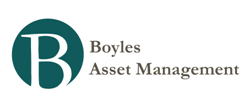Money and Finance
- Barry Schwartz Interview
Found via Simoleon Sense. The European: The classical economic point of view is that peoples’ decisions results from a careful weighing of what will create the most desirable result. What do you advocate? Schwartz: Well, I think this picture is completely...
- The Extraordinary Popular Delusion Of Bubble Spotting - By Jason Zweig
Can you spot a bubble? Ever since 1841, when a Scottish journalist named Charles Mackay published the book known today as "Extraordinary Popular Delusions and the Madness of Crowds," the answer has seemed clear. If you watch carefully for signs of euphoria,...
- Gary Klein On Insight
Found via Simoleon Sense. What's the tradeoff between people using their experience (people using the knowledge they've gained, and the expertise that they've developed), versus being able to just follow steps and procedures? We know from...
- Why We’ll Always Have More Money Than Sense - By Robert Shiller
When it comes to market bubbles and how they are created, very little, if anything, has changed. This is because human psychology has not changed. Massive bubbles are created when large numbers of people buy into "new era" stories that exaggerate how...
- Stanford Lawyer: Interview With Charlie Munger
How and why do you think economists have gotten this so wrong? I would argue that the economists have not been all that good at working concepts of good and evil into their profession. Nor do they understand, at all well, the economic consequences of...
Money and Finance
The WSJ interview with Robert Shiller
Link to interview: Robert Shiller's Nobel Knowledge
Q: One theme that runs through your work is that people tend to make mistakes over and over again. That's quite different than what I learned in college economics—that people are rational. How did you start thinking about people's mistakes?
A: When you went to college, the economics profession had reached an unnatural state. Mathematical models of rational behavior became the rage. It was just an abnormal time. I was reading more widely and wanting to come back to reality.
Q: Was there something you saw in reality that led you to this?
A: Well, bubbles. The story about bubbles was that the markets appear random, but that's only because markets respond to new information and new information is always unpredictable. It seemed to be almost like a mythology to me. The idea that people are so optimizing, so calculating and so ready to update their information, that's true of maybe a tiny fraction of 1 percent of people. It's not going to explain the whole market.
Q: Are bubbles always a bad thing, or do they have some good effects?
A: First of all, it's a free world and people can do what they want. I'm not proposing we put the straightjacket on these things. The other thing is that human nature needs stimulation and people have to have some sense of opportunity and excitement. I think profits are an important motivator. In the long run, it's hard to say that bubbles are really bad.
Take the Internet bubble in the 1990s. What that did was generate a lot of start-ups, some of them foolish, some of them failed, but others survived, so is it a bad thing? I find it hard to think what the alternative would be. We could have had a Federal Reserve that tried to lean against that. Ultimately, our policies in economics are somewhat intuitive and our models are not accurate enough to tell us what the right policy is, so I'm thinking we might have been better off if we tamed these bubbles, but there is no way to be sure.
- Barry Schwartz Interview
Found via Simoleon Sense. The European: The classical economic point of view is that peoples’ decisions results from a careful weighing of what will create the most desirable result. What do you advocate? Schwartz: Well, I think this picture is completely...
- The Extraordinary Popular Delusion Of Bubble Spotting - By Jason Zweig
Can you spot a bubble? Ever since 1841, when a Scottish journalist named Charles Mackay published the book known today as "Extraordinary Popular Delusions and the Madness of Crowds," the answer has seemed clear. If you watch carefully for signs of euphoria,...
- Gary Klein On Insight
Found via Simoleon Sense. What's the tradeoff between people using their experience (people using the knowledge they've gained, and the expertise that they've developed), versus being able to just follow steps and procedures? We know from...
- Why We’ll Always Have More Money Than Sense - By Robert Shiller
When it comes to market bubbles and how they are created, very little, if anything, has changed. This is because human psychology has not changed. Massive bubbles are created when large numbers of people buy into "new era" stories that exaggerate how...
- Stanford Lawyer: Interview With Charlie Munger
How and why do you think economists have gotten this so wrong? I would argue that the economists have not been all that good at working concepts of good and evil into their profession. Nor do they understand, at all well, the economic consequences of...

